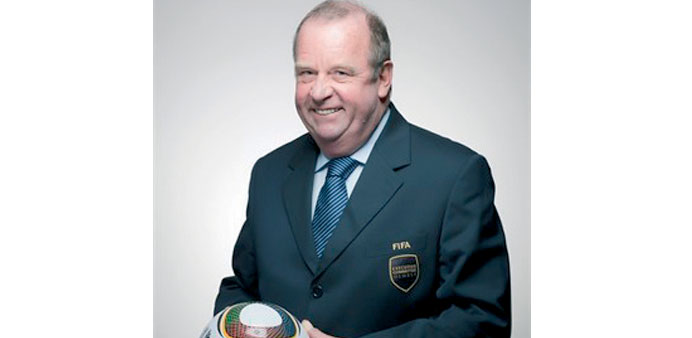|
|
FIFA’s top doctor has taken the heat off the whole summer versus winter debate around the 2022 World Cup in Qatar by clearly voicing his preference for the tournament to be held in “better temperature conditions”.
Michel D’Hooghe, the chairman of FIFA’s Medical Commission, was speaking to reporters on the sidelines of a sports medicine conference in Doha organised by Aspetar, Qatar’s internationally recognised hospital which treats high-profile athletes.
FIFA secretary-general Jerome Valcke had said earlier this month that the World Cup could be moved to the winter if there is medical evidence to prove that Qatar’s summertime temperatures in excess of 45 degrees Celsius would adversely affect the health and performance of the players.
And although D’Hooghe claimed he was not aware of Valcke’s statement, he nevertheless endorsed it wholeheartedly, indicating the game’s stakeholders also favoured a World Cup in the winter.
“You could say that the matches will be played in 21 degrees because of the technical phenomenal possibilities in Qatar,” D’Hooghe said in reference to Qatar’s hi-tech bid which said modern stadium cooling technology would provide players with comfortable playing conditions.
But the Belgian said there was “much more to football” than air-conditioned stadiums.
“I would medically think that it would be a good thing to play in better temperature conditions than in full summer,” D’Hooghe pointed out.
When asked pointedly if he meant winter by “better temperature conditions”, D’Hooghe smiled.
“I mean the period in Qatar when the air temperatures are low,” the Belgian explained, once again avoiding the word “winter” but at the same time also leaving nothing to doubt.
D’Hooghe, who is also a member of the FIFA executive committee, said his unique position as a top sports doctor as well as a “sports politician” gave him a rare insight about how things worked in world football.
“I have been involved with eight World Cups. It’s not just about the teams. There will be 15,000 members of the media who are not necessarily the youngest or the fittest. They will have to work in “very irregular” circumstances. I have seen members of the media suffering from medical problems at World Cups.
“And then there will be hundreds of thousands of fans who are an important part of the football family. Their interests should be also taken into consideration.”
D’Hooghe pointed out that late summertime kick-offs were also not a solution.
“You have to wonder whether late evening kick-offs are “politically” possible. You have to see what the components of television and marketing are. There are television partners, marketing partners and so on.”
But D’Hooghe added that there was still plenty of time to arrive at a solution that would satisfy everybody.
“The best thing to do is to go to the World Cup in Brazil in 2014 and I think perhaps from the medical world will come a recommendation (about shifting the 2022 World Cup to winter.)
“But the final decision rests with the Qatar organising committee and the FIFA executive committee.
“Let’s arrive at a decision with a good mind, not with dogmatic ideas. Let’s do what’s best for everyone.” Page 13
Aspetar a ‘gift from heaven’
FIFA Medical Commission chairman Michel D’Hooghe was all praise for the Aspetar sports medicine hospital in Qatar, calling it a “gift from heaven”. “What more can I say about this wonderful facility. It’s really a gift from heaven for sports which is doing pioneering work in the field of sports medicine,” D’Hooghe said. “Its fantastic team of doctors with their great scientific knowledge are doing great work in helping injured sportsmen, especially footballers.” He added that Aspetar would play a key role with FIFA in treating footballers with serious injuries.
“Aspetar is also a designated FIFA centre of excellence. We will use its expertise whenever there is a need.”

